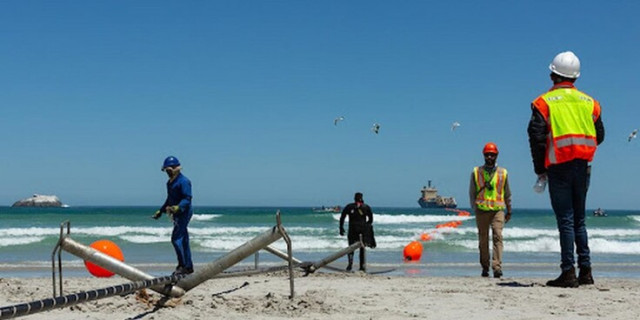The lack of dialogue with the government has prompted telcos to caution Hitech Construction, the firm handling the project, to exercise vigilance to prevent damage to critical national infrastructure along the coastal lines.
The coastal corridor of the Lagos-Calabar highway plays a pivotal role as a landing site for several submarine cables linking Nigeria to Europe.
These cables, such as the West Africa Cable System, MainOne, Glo1, ACE, and NCSCS, are essential for facilitating international communications and data transmission within the country.
Gbenga Adebayo, chairman of the Association of Licensed Telecom Operators of Nigeria (ALTON), stated, "There hasn't been any damage done or any incident, and we haven't been consulted as well. I think the message is clear: caution has to be taken while working in that quadrant. So, so far, no notice and no consultation."
The coastal corridor is crucial, serving as the landing site for multiple submarine cables connecting Nigeria to Europe, including the West Africa Cable System, MainOne, Glo1, ACE, and NCSCS.
Tony Emoekpere, president of the Association of Telecommunications Companies of Nigeria (ATCON), acknowledged a publication indicating the government's invitation for stakeholder consultations.
However, he emphasized the need for proactive engagement to address potential risks and safeguard vital infrastructure.
Emoekpere said, "I got the information that the coastal highway may not really impact or disrupt some areas. However, I have seen a publication indicating that the Federal Government invited stakeholders for consultation." He also offered reassurance that some areas along the coastal corridor might not be affected by the construction.




















